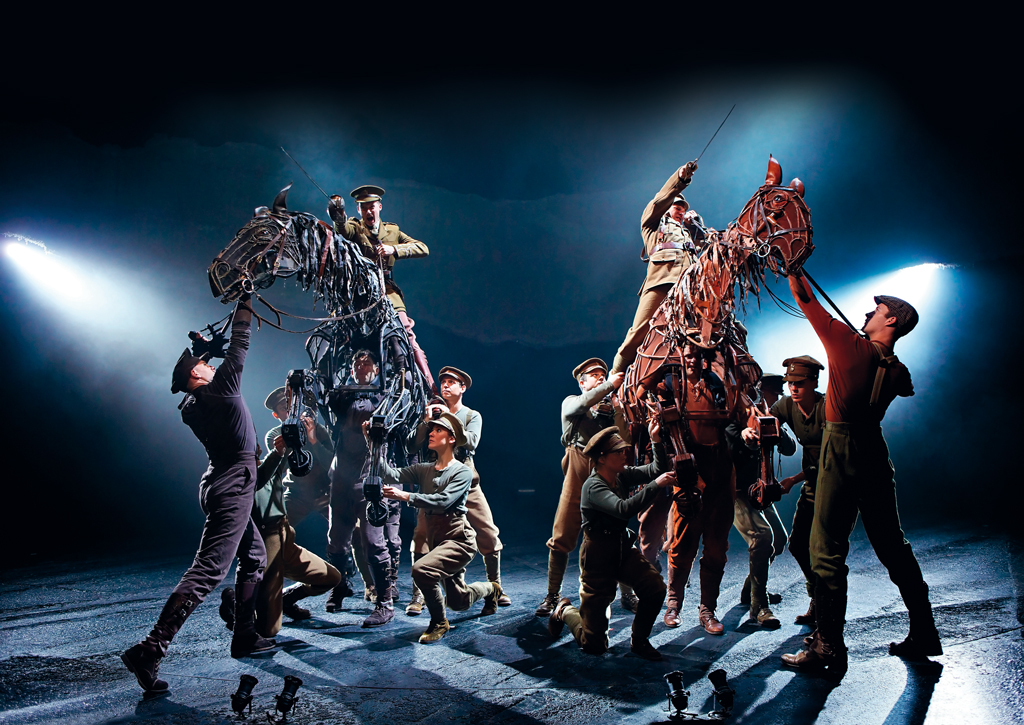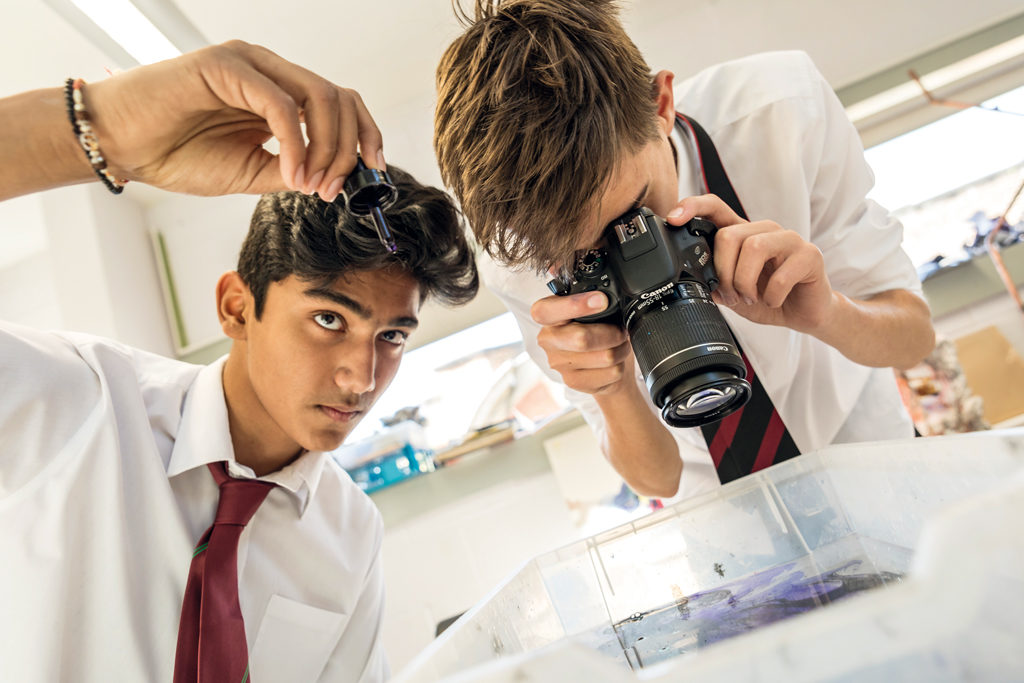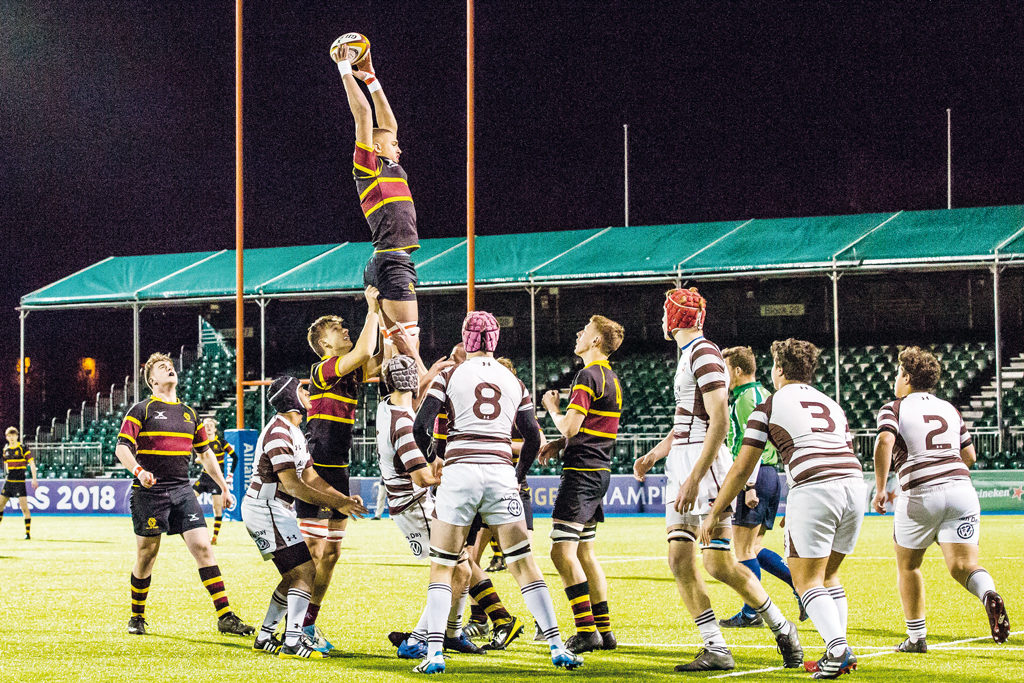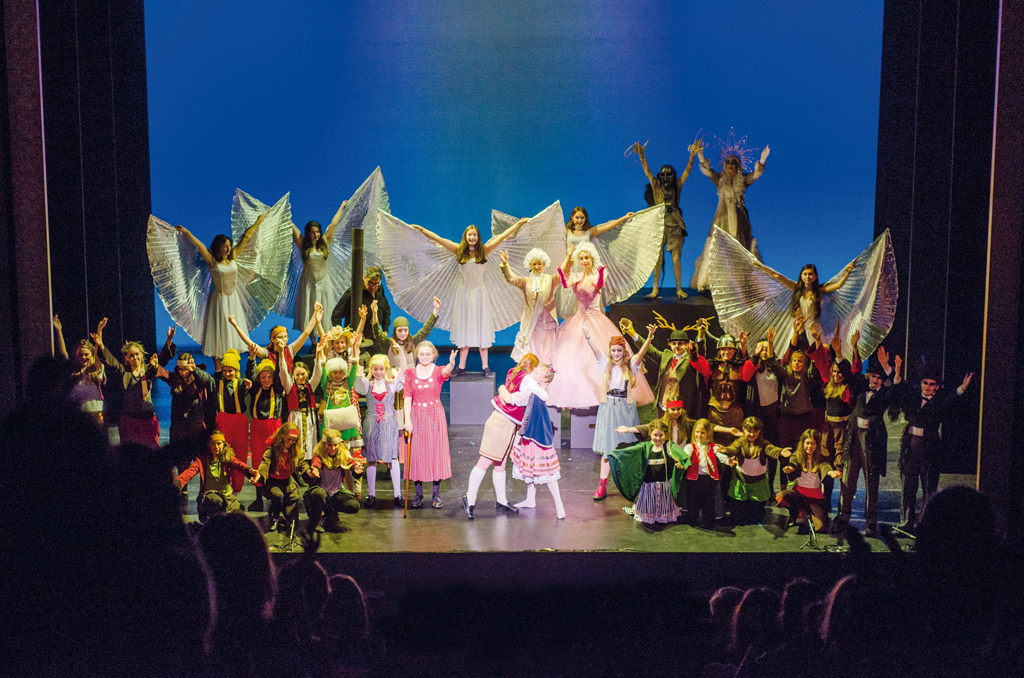London Schools: A Cultural Sweetie Shop
By
6 years ago


Christopher Silvester feasts on the plethora of sporting and cultural opportunities offered by London to enterprising independent schools
Independent schools in cities are sometimes thought to be at a disadvantage compared to their country cousins when it comes to facilities. Often with no rolling acres available for playing fields and limited space, if any, on which to build new attractions, they have to make do with what is out there. However, when it comes to culture and accessibility, metropolitan schools might well be quids in, particularly in London, which is heaving with extra-curricular possibilities.
Culture in the Capital

While a trip to a museum might be the highlight of a country school, in London it can be a weekly event, never mind the after-school options. At UCS Hampstead, for example, the art and history of art departments organise frequent visits to galleries and exhibitions and pupils don’t just see West End dramatic productions but fringe plays as well. Chemists, physicists and biologists have a sweetie shop of evening lectures and talks to choose from, not to mention laboratory days run by The Royal Institution. ‘The pupils more than appreciate the significance of working in a laboratory where nine chemical elements were discovered,’ says assistant head Ed Roberts.
Sports Stadiums
Such opportunities spill over onto the sports field. While home facilities might be more limited, the pros are rather exciting. After all, which teen rugby enthusiast wouldn’t relish the opportunity to play at Allianz Park (home of the Saracens)? ‘Usually these matches are flagship games against local rivals and are played under floodlights in the evening,’ says Roberts. ‘It’s quite an experience for the boys to play at the home of the former European champions under the lights.’
Dulwich is fortunate to have a beautiful 70-acre campus with excellent sports facilities. But in addition, it also uses the Herne Hill velodrome (host to the 1948 Olympics track cycling) and the 2012 Olympics London Aquatics Centre in Stratford. ‘Rugby success in recent years has enabled us to enjoy playing on the hallowed turf of Twickenham and visits to premiership football matches are always favourite outings for the boarders [ten per cent of the pupils],’ says Phil Greenaway, Director of Sport. ‘We also make use of the Dulwich and Sydenham golf course – on our doorstep – for golf coaching.’ Parents like the fact that nearly all of these experiences are included in the fees.

Latymer Upper plays the local card as well, says Tallan Gill, Director of Sport who organises sporting trips to high-profile matches in the city. ‘Last year, our cricketers went to Lord’s to see a test match in May and our netballers went to the Copper Box, at the Olympic Park, to see England play Australia.’ There’s also the varsity match at Twickenham and the Copper Box (at the Stratford Olympic park) for England netball, as well as excellent use of local sports clubs facilities, such as Richmond Hockey Club and the Linford Christie Athletics Stadium, for regular training and fixtures.
Francis Holland, Sloane Square, has a treasured netball court onsite for fixtures and training but uses Battersea Park’s facilities every day for netball, tennis and rounders. ‘The Millennium Arena is used for athletics, so girls are thereby benefiting from top sporting facilities used by elite sporting clubs,’ says Director of Marketing Vanessa McKinley. ‘We also use the Queen Mother Sports Centre for swimming.’
‘Our sister school, Francis Holland, Regent’s Park, use Regent’s Park for netball, tennis and rounders. They have their own swimming pool and gym onsite and use Paddington Recreation ground for hockey and the Westway Sports Centre for rock-climbing and football.’

Pick ‘n Mix
Proximity means that pupils can dip in and out of different events, so lower-sixth form art students at Latymer Upper heard journalist Louisa Buck preview the Frieze Art Fair before attending a day’s conference at Tate Britain run by the University of Sussex. Other pupils took part in the articulation competition – a public speaking event about art hosted at venues like the Whitechapel Gallery, the Courtauld Institute and the Saatchi Gallery.
It’s the sheer plethora of opportunities which is breathtaking. Aside from the above, pupils have visited the studios of artists Ben Johnson and Sir Peter Blake, the William Morris Museum and the National Art Library at the V&A to learn how to do research (and see the plaster courts). The Art History Society alone has hosted ten speakers this year alone, including local artists, curators and art critics.
Dulwich College supplements its extensive live theatre and dance programme with a series of workshops and seminars given by industry professionals who share their knowledge of their craft and contemporary theatre practice, including, most recently, playwright Timberlake Wertenbaker, actors Lesley Sharp and Hara Yannas, Mikey Brett (puppeteer and animator on War Horse, Gravity and The Muppets) and Zak Nemorin (choreographer and movement specialist).
Fruitful Partnerships
‘Dulwich College enjoys close ties with the Rose Theatre Trust and Upper School pupils are afforded the opportunity to follow in the footsteps of our founder, actor manager Edward Alleyn, by taking part in workshops on the excavated footings of the Elizabethan playhouse,’ says Peter Jolly, Director of Drama. ‘The junior school (years three to six) attends three theatre performances a year, and also has two or three visits from performers or theatre groups.’
The school also works extensively with the Dulwich Picture Gallery. ‘The Dulwich College annual film awards were founded in 2014 in partnership with the Dulwich Picture Gallery and Film Aid International,’ explains Director of Art, Sue Mulholland, ‘and they have become a catalyst for nurturing fresh creative talent within the college.’
Francis Holland, Sloane Square, offers every pupil the opportunity to perform on a West End stage at the Shaftesbury Theatre every year. ‘In February, 50 of our girls are appearing in the musical hit production of Singin’ in the Rain,’ says McKinley. ‘In addition, girls have the opportunity to take part in the Shakespeare for School’s Festival at RADA – in 2018 girls performed Henry V.’
Paying the Price
One concern parents are likely to have is the extra costs that such a rich variety of activities might entail. However, the schools are able to use bulk buying power to their advantage. Pupils at Latymer Upper take advantage of theatre productions’ student discounts through group rates and school’s rates, explains Justin Joseph, Head of Drama; ‘it means that, as we book early, we can get tickets cheaply. Theatres also often offer one free ticket for every ten sold.’
Travel to these venues is generally paid for through department budgets and through TfL’s School Party Travel Scheme. ‘Many exhibitions are free,’ says Latimer Upper’s Lucy Cole, ‘but where there is a charge this is passed on to parents – or, if they require financial support, the trips and activities fund, financed by the Parents’ Gild, offers financial assistance to bursary families and those families whose circumstances may have changed.’
Easy access to international communications means London schools’ artistic licence can extend beyond the UK’s borders too. Sixth form art students enjoy a week-long art trip during half-term alternating between New York or a week split between Florence and Venice. ‘Arguably Paris is on our doorstep as it’s so quick to get to,’ says Ruth Bell, head of history of art.
Prep School Perks
In prep schools, the difference in facilities between London and the country can often be even more pronounced. Many London prep schools can barely manage a postage stamp of a playground compared to their spolit country counterparts basking in extensive playing fields and intriguing woodland useful for making camps. But at St Paul’s Cathedral School, a London co-educational prep school, pupils are more than compensated by an expansive range of dramatical opportunities in and out of school.
‘Shakespeare’s Globe is just a short stroll away,’ says headmaster Simon Larter-Evans, ‘and don’t forget music, too. The Barbican is an easy walk, and we are enjoying their new series of early evening concerts. We embrace all the performing arts and employ a dance teacher as well as a drama teacher. We run one of the most extensive music departments in prep school education in the country.’
And while sporting facilities might not be home-grown, prep schools work hard to foster close relationships with the London parks, including Victoria Park, Coram’s Fields and the well-stocked Battersea Park. ‘We enjoy great relationships with park management teams and frequently play fixtures against other prep schools. We are also very grateful to the City of London School for Boys for use of its swimming pool,’ says Larter-Evans.
‘Almost everything we do is costed within our fees. Very rarely, we might ask for a small contribution, for example, to pay for a last-minute excursion to see an art exhibition. And our PTA is also very generous in supporting these things.’ Another co-educational prep school, Knightsbridge School, has a full-time drama teacher and dance teacher, former professionals who work with the director of music. ‘They invite in scouts and give opportunities to many children to perform in West End shows,’ says the school’s founder, Magoo Giles. ‘Currently we have one in Les Mis and another in School of Rock.’
Pupils attend West End shows and the school supports Intermission, a Shakespeare-inspired rehabilitation group, who perform out of St Saviour’s Church.
Ingenious Solutions
When it comes to visiting museums and galleries, Knightsbridge School encourages visit coordinators to recce and link their visits to their curricula, using the resources of galleries and museums to ensure a differentiated and exciting experience for students. ‘As well as the Royal Hospital, Chelsea, the Saatchi Gallery, the Royal Court Theatre and the Imperial War Museum, we visit the Forest School (for woodland education), the Natural History Museum and London Zoo, as well as churches and mosques.’
Since Knightsbridge School was only founded in 2008, it has no sports venue of its own and depends upon ‘anywhere we find that is useable,’ says Giles, such as the fields of the Royal Hospital, St Luke’s Astroturf, the Royal Parks, Battersea facilities, local astroturfs (for tennis and football) and swimming pools.
But that doesn’t stop them putting up teams for sports all over London, playing over 350 matches a year with pupils attending after-school clubs run by local providers, such as Darius Knight for table-tennis and Bedhead for football, where children have been scouted (one by Arsenal, two by Chelsea, another by Crystal Palace). There are trips to professional venues, too. ‘Tomorrow, for example, our senior girls are attending the England-Uganda Netball tri-series,’ says Giles, ‘and the boys are attending the Varsity Match next week.’
So, with application and ingenuity London schools compensate for a lack of homegrown facilities to the extent that one can’t help wondering whether the opportunities open to them are not wider than those available to many country schools.
This article was originally published in School House Magazine Spring/Summer in March 2019.
READ MORE: Incredible Global Schools Worth the Long-haul | Stick or Twist? Sixth Form College Pros and Cons



